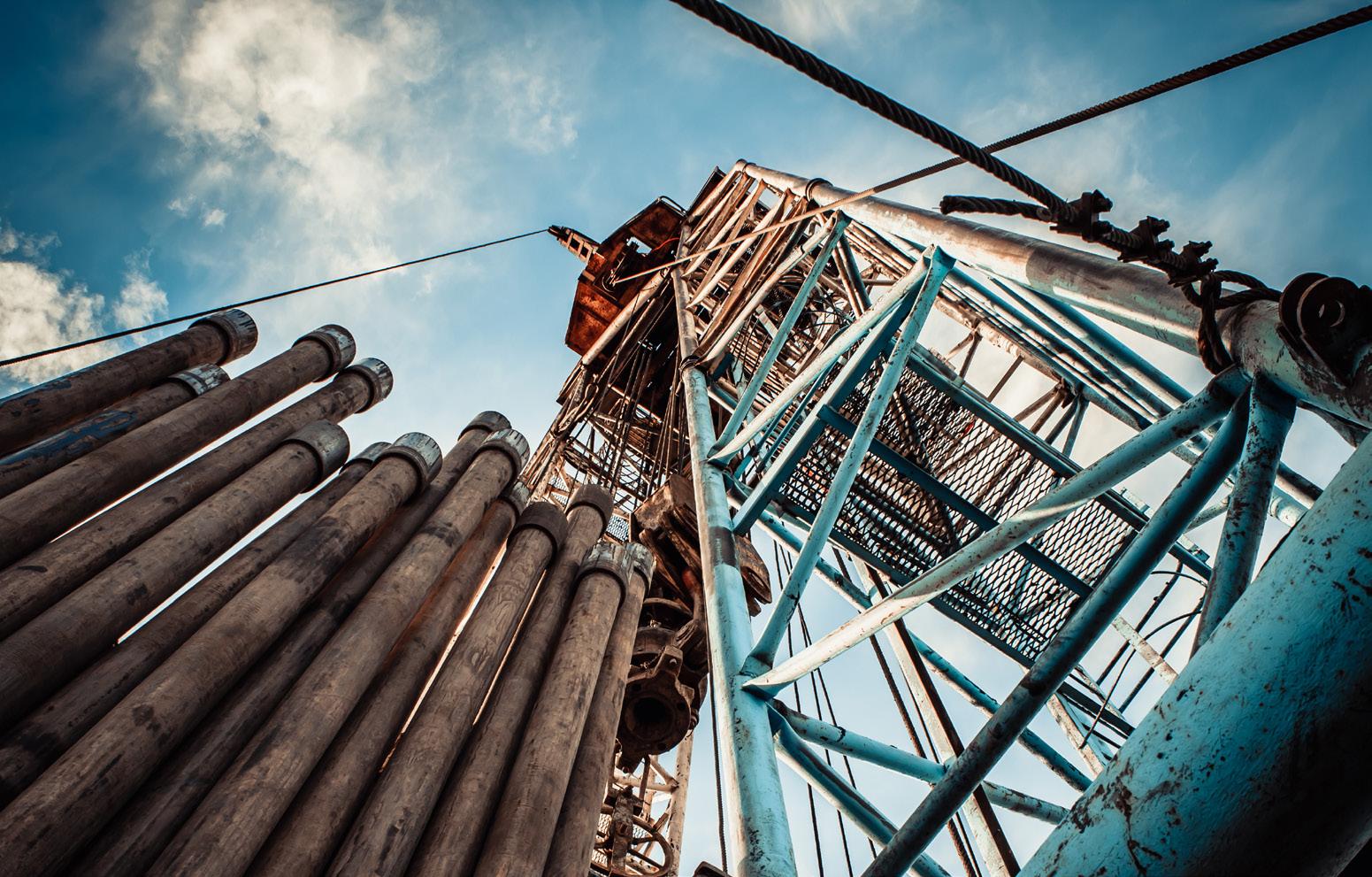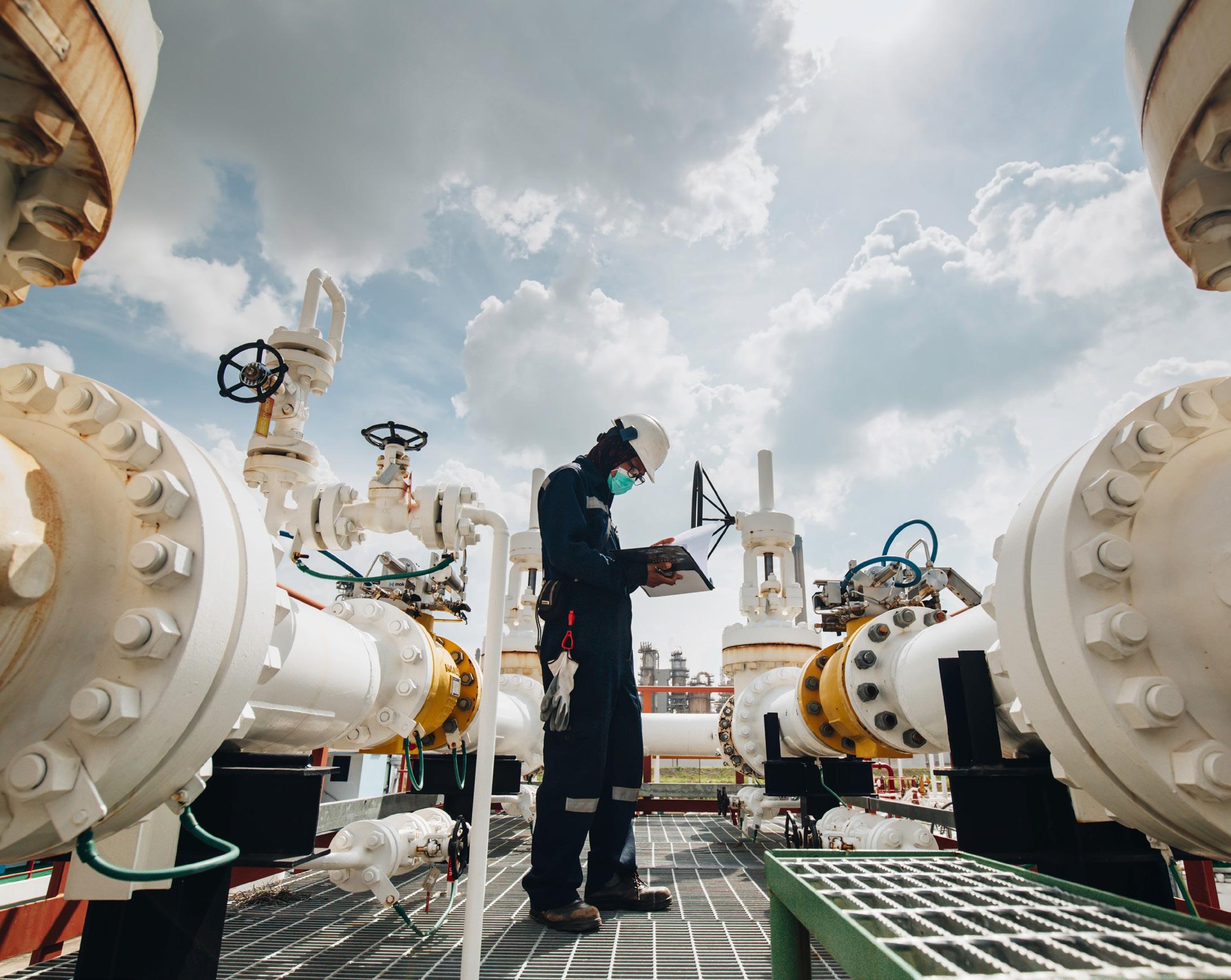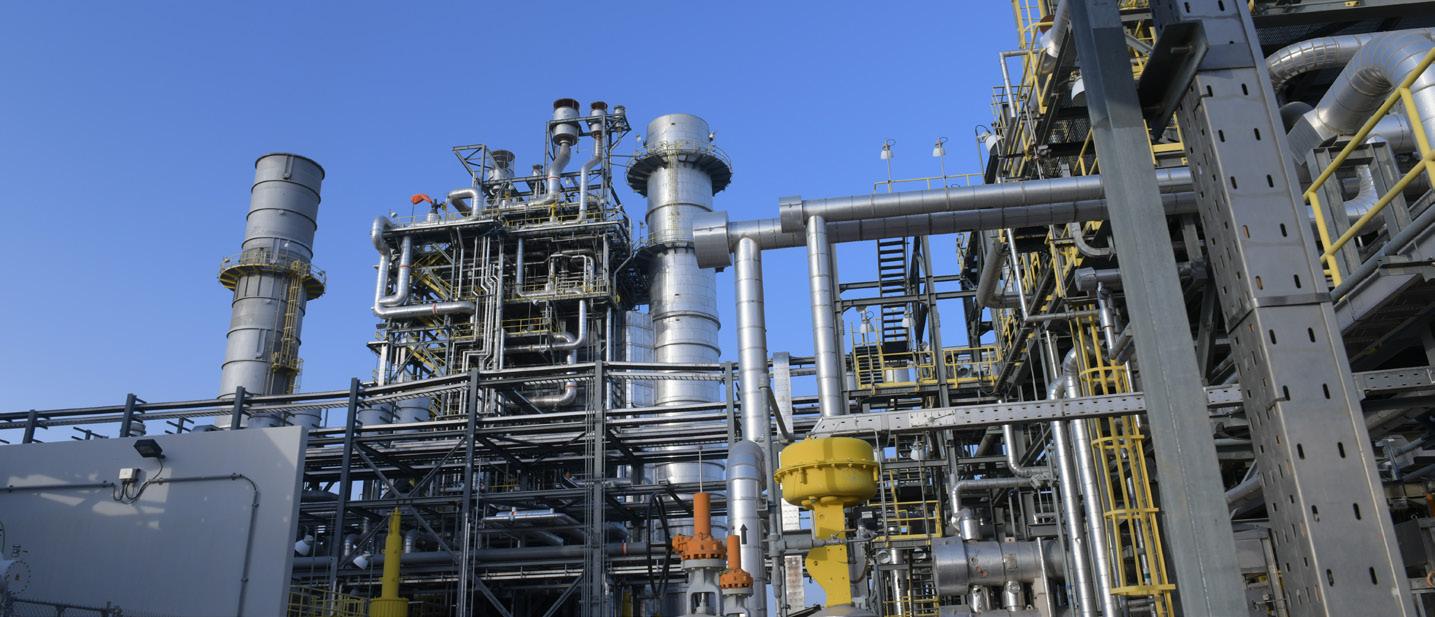
3 minute read
Harnessing Gen AI’s Potential in the Oil and Gas Sector
Genetic algorithms (Gen AI) represent a promising frontier in reshaping the landscape of the oil and gas sector, offering a suite of innovative applications poised to revolutionise operations across the entire value chain. These applications harness the power of artificial intelligence and evolutionary computation to tackle complex challenges, optimise processes, and drive efficiency in various facets of the industry.
Second Floor Front 116-118 Chancery Lane London WC1A 1PP
Tel: +44 (0)203 675 9530
At the forefront of Gen AI’s potential lies reservoir management and optimisation. By assimilating vast datasets encompassing geological formations, production histories, and reservoir characteristics, Gen AI algorithms can discern patterns, identify optimal drilling locations, and formulate strategies to enhance hydrocarbon recovery rates. Through continuous adaptation and evolution based on real-time data inputs, these algorithms can refine reservoir management practices, optimise well placement, and maximise production yields.
Gen AI also holds significant promise in drilling and wellbore optimisation. By examining historical drilling data, geomechanical properties, and real-time sensor feedback, Gen AI algorithms can optimise drilling parameters, such as trajectory and speed, to minimise drilling time, reduce costs, and mitigate risks associated with wellbore instability or formation damage. This enables drilling engineers to make proactive decisions, enhancing operational efficiency and safety.
In the realm of predictive maintenance and asset management, Gen AI offers invaluable insights for optimising equipment performance and longevity. By analysing sensor data from machinery and equipment, Gen AI algorithms can predict impending failures or malfunctions, enabling preemptive maintenance interventions to minimise downtime, reduce maintenance costs, and optimise asset utilization.
When it comes to production optimization by analysing production data and operational parameters GenAI can identify inefficiencies and opportunities for improvement. By optimising production workflows, minimising downtime, and maximising production rates, Gen AI algorithms enhance overall operational efficiency and profitability.

Supply chain optimisation represents another frontier for Gen AI applications in the oil and gas sector. By studying historical data, market trends, and logistical parameters, Gen AI algorithms can optimise inventory management, procurement processes, and logistics operations. This ensures streamlined supply chain operations, minimized costs, and enhanced resilience against disruptions.
Additionally, Gen AI can support environmental monitoring efforts by analysing environmental data and predicting the potential impact of oil and gas operations on ecosystems. By identifying risks and recommending mitigation measures, Gen AI contributes to environmental sustainability and regulatory compliance.
Overall, the integration of Gen AI technologies holds immense potential to drive innovation, efficiency, and sustainability in the oil and gas sector, paving the way for transformative advancements and competitive differentiation in a rapidly evolving industry landscape.


Amidst a wave of innovation, the fusion of digital twins and generative AI emerges as a game-changer for asset owners in the oil and gas industry, enabling smarter decisions, optimized processes, and a transformative journey toward efficiency, sustainability, and resilience of cloud
Often hailed as the harbinger of revolutionary change, AI has ridden a wave of hype and fascination.
Predictive artificial intelligence (AI) has rapidly emerged as a transformative force in the energy industry, offering actionable insights to optimize asset management
The right mix of supportive policies, financial mechanisms, and technological innovation can de-risk investments in carbon capture, utilisation and storage (CCUS)
In the dynamic realm of the oil and gas industry, the integration of digital twin technology is reshaping operations, driving efficiency gains, and paving the way for a sustainable future amidst evolving environmental and economic imperatives
In today’s energy sector, the efficient management and maintenance of offshore assets is more crucial than ever to ensure sustained operations and long-term viability
Amidst a staggering performance gap in the oil and gas industry, the strategic implementation of data analytics systems promises to revolutionize operations, drive efficiency gains, and mitigate environmental impacts, ushering in a new era of sustainable growth
At look at how Aramco are harnessing power of AI, Big Data, and the Industrial Internet of Things (IIoT)
How digital twins are reshaping the oil and gas industry, from enhancing safety and efficiency to accelerating growth and innovation the Oil and Gas Sector’s Cyber Preparedness
As cyberattacks escalate in frequency and sophistication, Siemens Energy underscores the urgent need for enhanced cybersecurity measures in the oil and gas industry
Wellbore Integrity with Intelligent Deployment and Advanced Well Architecture
Conventional multi-zone completions in the world of offshore oil and gas often use a technique of cementing the wellbore space between the casing and the formation, and then perforating the cement to initiate production the Industrial Sector Use Digital and AI as a Competitive Advantage?
With increasing adoption of digital twins across the industry, the quality and ongoing maintenance of data is coming under the spotlight.
In the rapidly evolving landscape of AI integration the transformative power of human-centered AI, emphasizing trust, collaboration, and maximizing opportunities to propel industries towards a sustainable and efficient future
Final Word: Harnessing Digitalization and Data Optimization in Upstream Oil and Gas
How remote telemetry solutions could help oil and gas operators greatly improve their sustainability measures
In the upstream oil and gas sector, the integration of digitalization and data optimization is revolutionizing operations, driving efficiency, safety, and sustainability to unprecedented heights.












